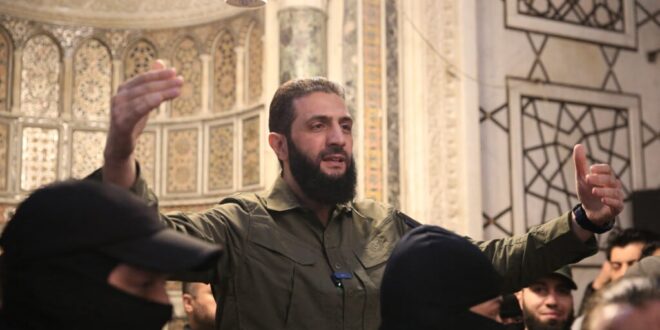Latest Developments
Al-Sharaa Pushes for Unity Amongst Rebel Factions: Hayat Tahrir al-Sham (HTS) leader Ahmad al-Sharaa, better known by the nom de guerre Abu Mohammad al-Jolani, announced on December 17 that Syria’s rebel “factions will be dissolved, and the fighters will be integrated into the Ministry of Defense.” Al-Sharaa also held discussions with representatives of opposition rebel groups, including the Daraa-based Southern Operations Room and the Turkish-backed Syrian National Army, to strategize on the formation of a unified military command in Syria.
Palestinian Factions and Pro-Assad Militias Ordered to Disarm: Armed Palestinian factions in Syria have allegedly been ordered to disarm, shut down their training camps, and dissolve their military formations. Additionally, as of December 15, HTS has begun confiscating weapons from former members of the Syrian Arab Army and Syria-based Iran-backed militias in exchange for an amnesty toward those who served under former Syrian President Bashar al-Assad.
Syria Will No Longer Serve as a Launchpad for Attacks Against Israel: In an interview with The Times of London, al-Sharaa affirmed, “We seek no conflict, whether with Israel or anyone else, and we will not allow Syria to be used as a base for such hostilities.” Syrian territory has been historically used by groups like Hezbollah, various Palestinian factions, and Iran-backed Iraqi militias to establish military infrastructure and launch attacks, particularly following the Hamas assault on Israel on October 7, 2023.FDD Expert Response
“Jolani is undertaking necessary, but so far insufficient, steps toward state building. Like all his actions so far, disbanding militias can be equally interpreted in one of two ways: swiftly monopolizing force in the hands of the state — the envy of Syria’s idle Lebanese neighbors — or consolidating power for HTS. His seeming overtures toward Israel can similarly be interpreted as either a genuine desire for peaceful relations with Syria’s southern neighbor or a pragmatic tactical pause until an HTS-dominated Syria regains its strength. On both matters, however, Jolani’s history, terrorist pedigree, and the tactical pragmatism that is the hallmark of most jihadist groups leaves little room for optimism.” —David Daoud, FDD Senior Fellow
“Jolani’s decision to disband rebel groups seemingly extends to some Palestinian terrorist organizations that have taken advantage of the Assad family’s friendly overtures to build infrastructure in the country and plot attacks against Israel. Syrians have not forgotten who sided with Assad during the civil war, and this historical context complicates matters for the former regime’s allies. If conditions in Syria increasingly disfavor groups like Palestinian Islamic Jihad, it may force them to relocate to another territory. Such a scenario would amount to a worst-case outcome for Palestinian armed groups.” — Joe Truzman, Senior Research Analyst and Editor at FDD’s Long War Journal
“Jolani recognizes the dangers of allowing numerous armed militias to operate unchecked after a 13-year civil war. Drawing lessons from the chaos in Iraq and Libya, he aims to legitimize his decision by centralizing Syria’s armed factions. He seeks to prevent the dominance of one militia over others. Furthermore, his statements regarding Israel reveal the strategic shifts of the past year. Jolani understands that allowing Syria to once again become a hub for militias targeting Israel would bring no benefit and could result in significant losses for him and his country.” — Ahmad Sharawi, FDD Research Analyst
 Eurasia Press & News
Eurasia Press & News




